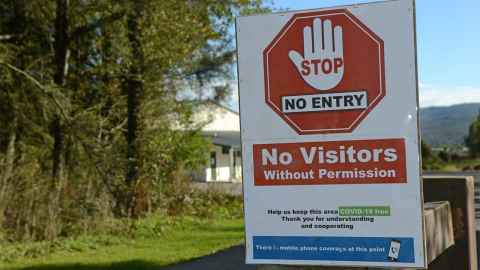Aucklanders less invested in lockdown #2
2 September 2020
Opinion: Fewer Aucklanders complied with lockdown #2 and Government faced increased criticism. But medical advice cannot be a partisan issue, writes Joel Rindelaub.

Lockdown Season 2 is in the books, and the ratings are now in: Aucklanders were less invested for this episode compared to the previous one.
During the first Level 3 period, travel to Auckland’s retail and recreational facilities was down roughly 71 percent from normal levels, while the same travel was down only 56 percent for this go-around, according to Google Mobility Data.
This suggests that just four out of five Aucklanders took the lockdown as seriously as they did last time back in early May.
While four out of five is still very good compliance overall, with this virus, a minor lapse in vigilance can have a lasting impact. Take for instance the “mini-cluster” in Mt Roskill, which some are claiming originated from private prayer groups that flouted Level 3 restrictions.
When we hear talk about buy-in from the whole team of five million, this is the reason why. Just as it only takes one match to start a fire, it only takes one person to spark an outbreak.
At this point, we don’t know exactly why the movements of some Aucklanders have changed, but we do know that media coverage has been in stark contrast to the preceding lockdown.
In the last weeks, nearly every New Zealand media outlet has published a commentary that questioned some aspect of the Level 3 lockdown. Broadcast personalities and social media followers have been eager to weigh in on complex scientific and economic topics outside their areas of expertise.
Not to be outdone, politicians have also been keen to jump in on the act. ACT’s David Seymour has proclaimed the virus is here to stay and that “we must learn to live with it”, which is more or less the same attitude that saw former National leader Simon Bridges get sacked back in May. Meanwhile, fringe political candidates like Advance NZ/NZ Public Party’s Jami-Lee Ross and Billy Te Kahika have taken this to the next level, actively participating in anti-lockdown protests inspired by conspiracy theories about vaccines and 5G.
A common theme in these collective actions is disapproval of the Prime Minister, which aligns with the timing of the upcoming election. While every citizen most certainly has the right to voice criticisms of the Government, using political rhetoric to downplay the importance of emergency public health guidelines could have serious consequences.
If enough people are convinced to deviate from the plan, it could completely undermine the efforts to protect the long-term health and safety of New Zealanders. This is exactly the fear of the nation’s infectious disease and public health scientists, who have urged politicians to use their platform to unite followers in the virus response rather than sow division and doubt.
While it’s open season to criticise politicians, that doesn’t give us a free pass to disparage science professionals in the same way. That’s not to say scientific recommendations should be free from judgement, far from it. Science, by definition, is always subject to critical review. But in doing so, the appropriate peer-reviewed data needs to be cited.
This isn’t politics, and we shouldn’t devolve medical advice into a partisan issue.
Having to go into lockdown is never ideal for anyone, and – regardless of the response to the virus – there will be negative impacts on health and the economy. Despite the desire to get life back to “normal”, New Zealanders still need to be very careful about their activities. In addition to regular hand-washing, staying home when feeling ill, and maintaining social distances, New Zealanders should also be avoiding prolonged periods indoors, limiting in-person gatherings, and wearing masks in public areas.
Unfortunately, we might not have the full dedication of the entire team going forward, so it is even more crucial to adhere to the health guidelines, otherwise we could once again be in for an unpopular sequel.
Joel Rindelaub is a research fellow in the Faculty of Science.
This article reflects the opinion of the authors and not necessarily the views of the University of Auckland.
Used with permission from Newsroom: Aucklanders less invested in lockdown #2, 2 September 2020.
Media queries
Alison Sims | Research Communications Editor
DDI 09 923 4953
Mob 021 249 0089
Email alison.sims@auckland.ac.nz